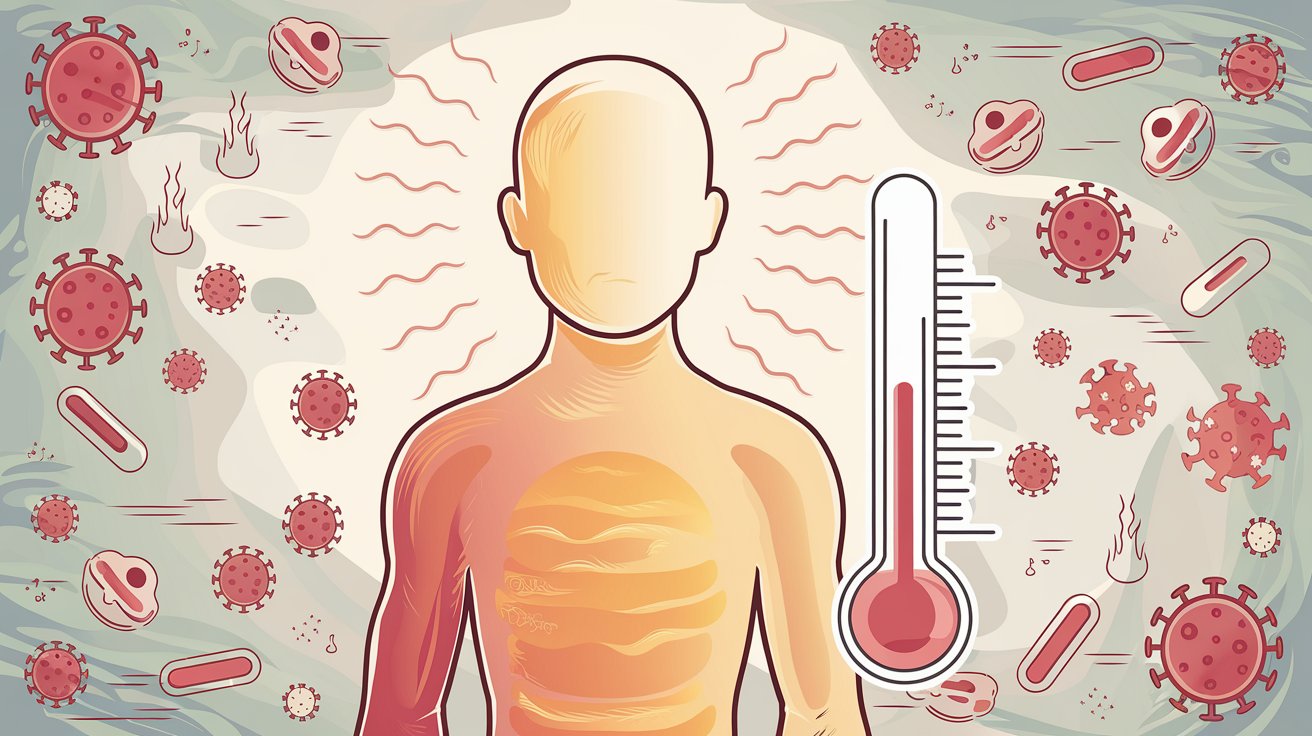Fever is a positive sign of the body’s defence mechanisms, a response to any kind of infections that makes the immune system work overtime to preserve the body. Although fevers may cause complications for the afflicted, they usually resolve themselves naturally. But knowing how to manage the symptoms of fever can give you relief and decrease the duration of the condition.
In this blog, we will read about various home remedies that can help to manage fever.
Understanding Fever
Fever is a condition characterised by a rise in body temperature above normal as a result of any disease. Fever is commonly associated with cases where the body is struggling to fight off a certain disease be it viral or bacterial. Average human body temperature is known to be between 36.1°C/ 97°F and 37.2°C/ 99°F. A fever, in most instances, is diagnosed if the body temperature is 100.4°F (38°C) and above.

Common Causes of Fever
> Viral Infections: Such as the flu or common cold.
> Bacterial Infections: Including strep throat or urinary tract infections.
> Heat Exhaustion: Resulting from prolonged exposure to high temperatures.
> Immunizations: Some vaccines can cause a mild fever as a reaction.
Home Remedies for Managing Fever

1. Stay Hydrated
Importance of Hydration
Fever helps your body get rid of infection and, in the process, you lose fluids through sweating and metabolism. It’s important to avoid getting dehydrated, and maintain the body temperatures by drinking a lot of water or any other fluids.
What to Drink :
- Water
- Herbal teas (such as chamomile or ginger tea)
- Coconut water
- Clear broths
2. Take Lukewarm Baths
Cooling Down with Baths
A warm bath can decrease the temperature of the body without causing shivers. Don’t get into cold showers or take cold baths as this may cause shivering and raise the body temperature more.
How to Do It :
Fill the tub with lukewarm water and soak for about 15-20 minutes. This method not only helps cool you down but also relaxes sore muscles.
3. Wear Lightweight Clothing
Choosing Appropriate Attire
Dressing in lightweight, breathable fabrics can help keep your body cool. Heavy clothing can trap heat and raise your temperature.
Tips for Comfort :
- Opt for cotton or linen clothing.
- Use light bed coverings instead of heavy blankets.
4. Consume Nutrient-Rich Foods
Eating Well During Fever
While your appetite may decrease during a fever, consuming light and nutritious foods can support your recovery.
Recommended Foods :
- Chicken soup: Provides hydration and nutrients.
- Fruits: Such as bananas and berries for vitamins and antioxidants.
- Yogurt: Contains probiotics that support gut health.
5. Herbal Remedies
Herbal remedies have been used for centuries to alleviate symptoms associated with fever. Here are some effective options:
Ginger Tea
Ginger has anti-inflammatory properties that can help reduce fever symptoms.
- How to Prepare: Boil fresh ginger slices in water, strain, and drink warm.
Tulsi (Holy Basil) Tea
Tulsi is known for its antibacterial and antiviral properties.
- How to Prepare: Boil tulsi leaves in water, strain, and drink the infusion.
Coriander Seed Tea
Coriander seeds can help reduce fever and boost immunity.
- How to Prepare: Boil coriander seeds in water, strain, and enjoy as tea.
6. Use Cool Compresses
Applying Compresses for Relief
Cool compresses can provide immediate relief from fever symptoms by helping to lower body temperature.
Where to Apply :
- Forehead
- Wrists
- Neck
7. Rest and Relaxation
Importance of Resting
Your body needs energy to fight off infections, so getting plenty of rest is essential when you have a fever.
Tips for Resting: Create a comfortable environment with minimal distractions, allowing your body the time it needs to heal.
8. Over-the-Counter Medications
While home remedies are effective, over-the-counter medications can provide additional relief from fever symptoms.
Acetaminophen or Ibuprofen
These medications can help lower fever and alleviate discomfort associated with aches and pains.
Dosage Guidelines: Always follow the recommended dosage on the packaging or consult a healthcare professional if unsure.
9. Avoid Caffeine and Alcohol
Caffeine and alcohol are known diuretics that only add up to the problem instead of helping with fever and its symptoms. Replace those with healthy beverages that do not include the use of high sugar content.
10. Monitor Your Symptoms
Keep track of your symptoms and temperature regularly:
- If your fever exceeds 103°F (39.4°C) or lasts more than three days, consult a healthcare professional.
- Be alert for other concerning symptoms such as severe headache, stiff neck, rash, or difficulty breathing.
When to Seek Medical Attention
While most fevers resolve on their own with home care, certain situations require medical attention:
> Persistent high fever lasting more than three days.
> Severe symptoms such as difficulty breathing or chest pain.
> Fever accompanied by rash or severe headache.
> Symptoms worsening despite home treatment.
For more useful information on various treatments and home remedies, check out Treatments.
Conclusion
It is absolutely safe and possible to have a fever managed at home with the help of basic measures and remedies that help a body to heal. Drinking fluids, taking foods with balanced diets, applying herbs and advocating for sufficient sleep are some ways of home care.
These strategies are good for managing mild fever that might accompany simple illnesses but always heed your body and consult a doctor should your condition not improve or worsen. If you are prudent while at home, you can significantly reduce the discomfort and allow your body to combat infection as it was originally designed to do.
